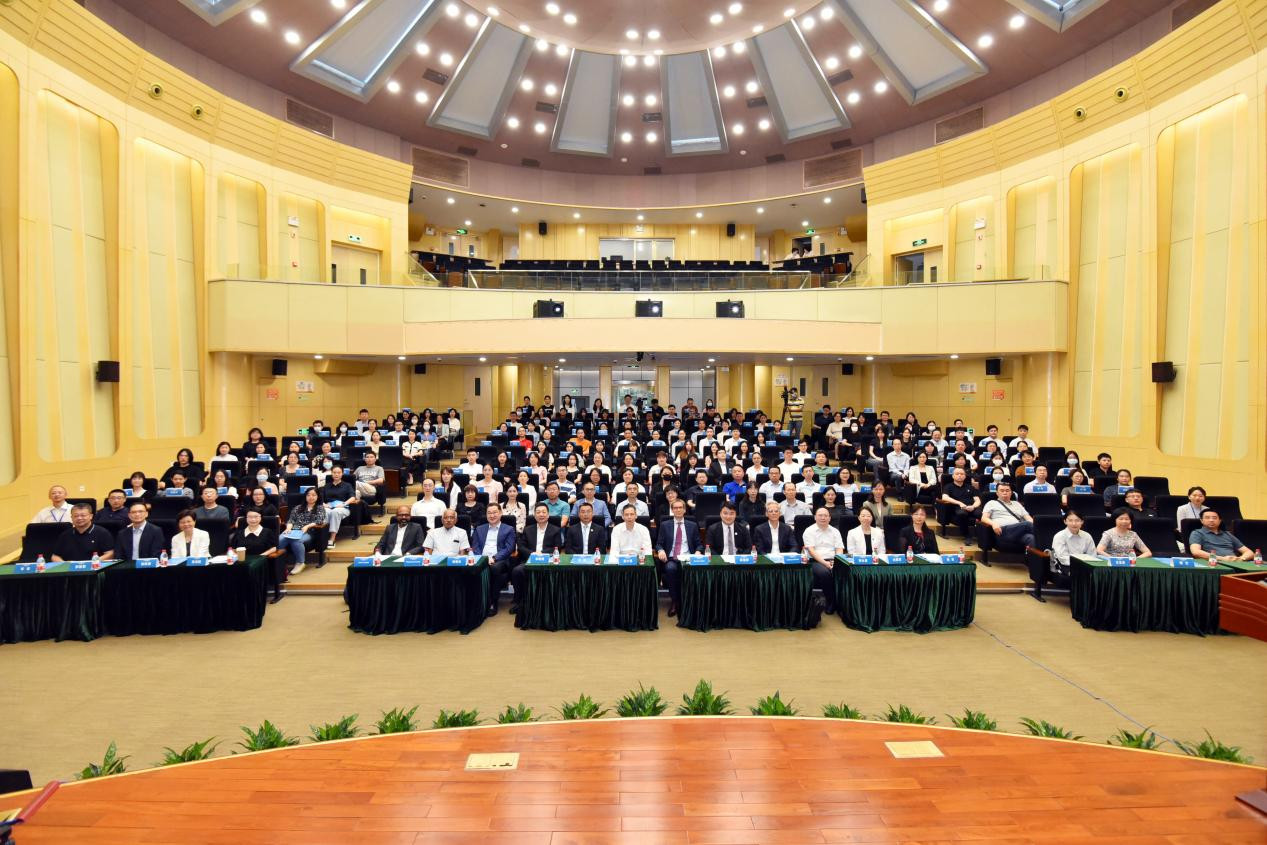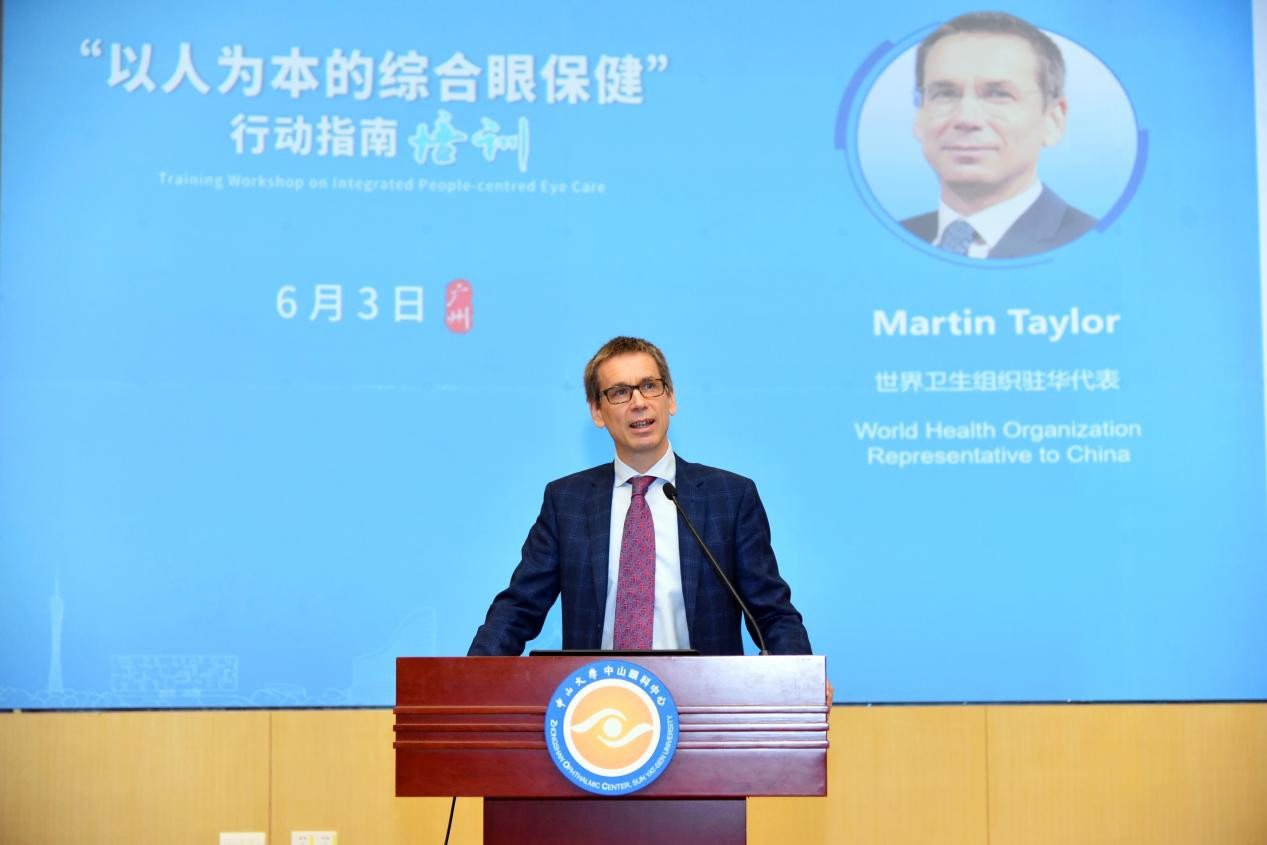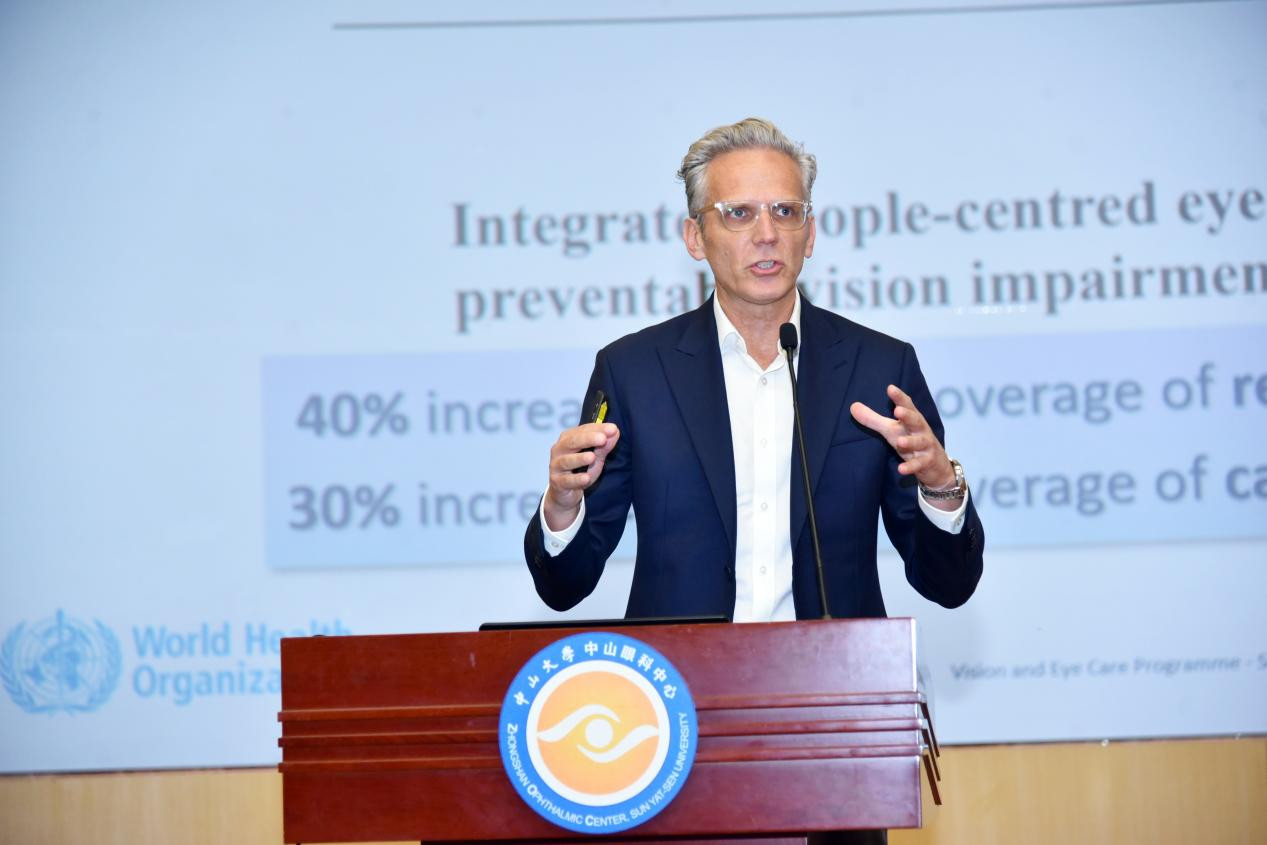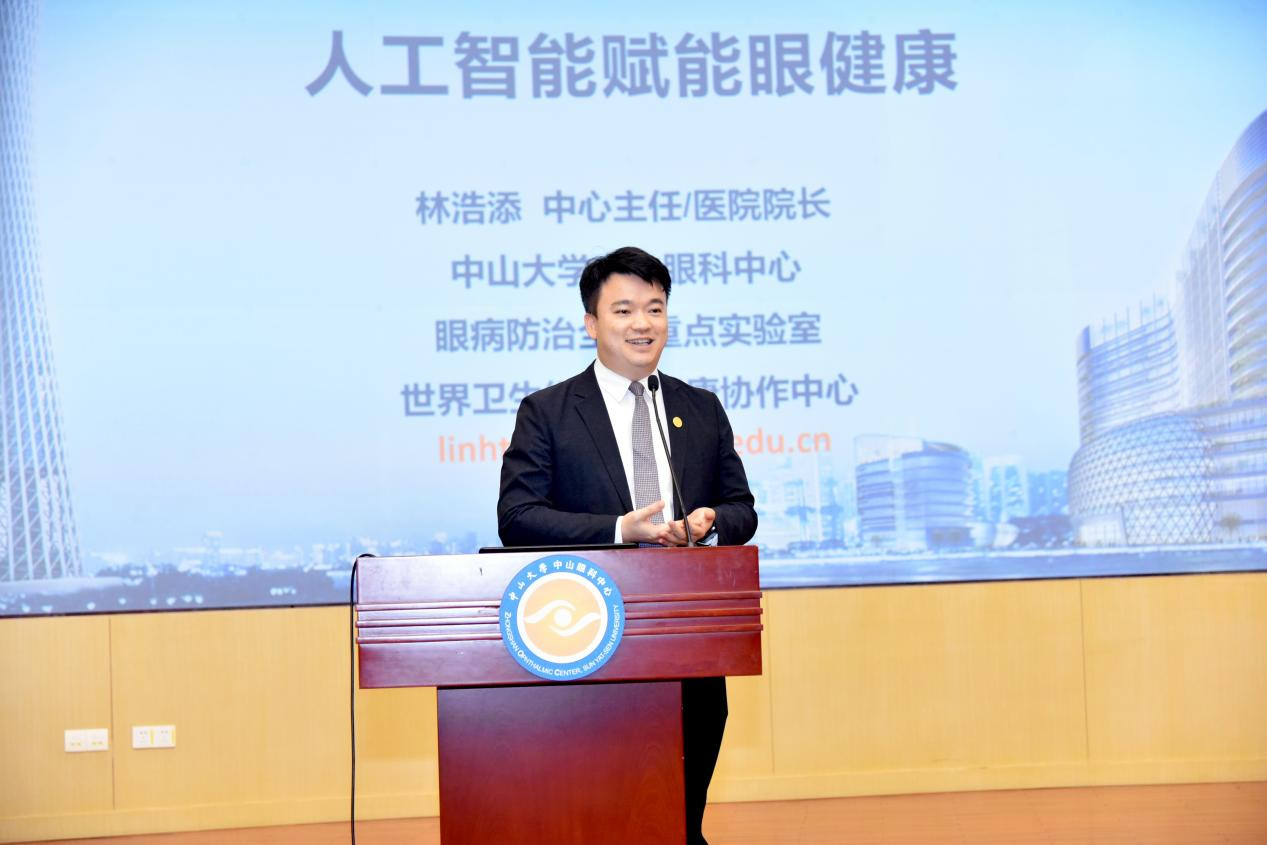The Zhongshan Ophthalmic Center (ZOC), Sun Yat-sen University recently hosted a training workshop on integrated people-centered eye care, with the aim to enhance the overall quality of eye health services in China.

At the training workshop on integrated people-centered eye care. (Photo provided to GDToday)
The workshop, which focused on the challenges and opportunities in global eye health, featured lectures by Mr. Martin Taylor, WHO Representative to China, Dr. Andreas Mueller, WHO Technical Advisor, and leading ophthalmic experts from top domestic and international blindness prevention institutions. Nearly 200 representatives from 69 ophthalmic institutions across 24 provinces and cities attended the event to learn and exchange insights.
Mr. Martin Taylor, WHO Representative to China, said that WHO has collaboration with a lot of institutions around China, especially in Guangdong, where there are many strong health care institutions. "And our collaboration has two parts. One is working together to improve health care in China, and the other is working with institutions in China to improve health care in other countries, because there is such strong capacity and expertise in China," he added.

Mr. Martin Taylor. (Photo provided to GDToday)
Dr. Andreas Mueller commented, "Only last year I was here in August for the launch of ZOC to become a collaborating centre, which is fantastic news. It is the only collaborating centre for vision and eye care in China at the moment, and we have developed a work plan. This time, it's a training workshop to develop trainers that can go back into their own province and train other people about the ideas and recommendations from the WHO."

Dr. Andreas Mueller, WHO Technical Advisor. (Photo provided to GDToday)
The advancement of new technologies such as artificial intelligence and big data is revolutionizing the early screening and precise diagnosis of eye diseases. Experts believe that AI holds the promise to integrate medical data to assist ophthalmologists in diagnosis, thereby enhancing the efficiency and accessibility of treatment. Prof. Lin Haotian, Director of ZOC, reported the hospital's utilization of AI technology in developing multiple intelligent devices and platforms capable of conducting intelligent screenings for various blinding eye diseases. For instance, the hospital introduced the 5G smart ophthalmic patrol vehicle, which integrates intelligent devices into a single vehicle.

Prof. Lin Haotian, Director of ZOC. (Photo provided to GDToday)
"Currently, there is a growing demand from the public for eye disease treatment, yet due to the uneven distribution of medical resources, some patients still cannot receive timely and effective treatment," said Lin. He expected that through this training, the promotion of new technologies and concepts in eye health nationwide would help enhance the level of eye health services in China.
Author | Hannah
Editor | Olivia, Nan, Abby, James
















